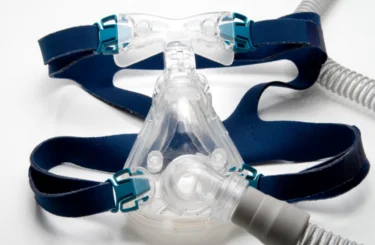
Another Vaginal Mesh Jury Tells the Manufacturer to Pay Millions in Damages
The nation’s third vaginal mesh trial came to a conclusion on August 15, 2013, and the result was the same as the first two jury trials: the plaintiff won.
As reported by Bloomberg, Donna Cisson was awarded $2 million by the jury after weeks of testimony and two days of deliberation. This was the second trial for defendant vaginal mesh manufacturer C. R. Bard Inc., and it too involved Bard’s Avaulta line of products. Last year, in the first mesh trial against the company, a California jury returned a $5.5 million verdict for Christine Scott and her husband. The second vaginal mesh trial in the country came to an end in February 2013 when a New Jersey jury rendered an $11.11 million verdict in favor of the plaintiff, Linda Gross, in a case involving Johnson & Johnson’s Prolift product.
Three things make the Cisson verdict interesting for those watching the vaginal mesh litigation, which now is reported to include over 16,000 cases across the county. First, this was the first bellwether trial to go to a jury from the large Multidistrict (MDL) proceeding pending in the U. S. District Court for the Southern District of West Virginia. The trial was conducted by the MDL designated trial team. While the first two jury verdicts were significant, they involved women whose cases were not consolidated in the MDL proceeding and were tried by their own lawyers.
The next MDL case is set to begin Monday August 19th, and many lawyers believe the eventual settlement of the 16,000 vaginal mesh cases will turn on the results of these initial MDL proceedings. An early multimillion-dollar win for the plaintiff spells trouble for manufacturers who were hoping they’d have better luck in the federal MDL than the earlier two state court trials. At some point, the defendants will have no more cards to play, and then a comprehensive settlement can be reached.
Second, the juries in all three trials were asked to determine whether the defendant failed to adequately warn of the dangers associated with the vaginal mesh product, and/or if the product was defective. In the Scott case, the jury found that Bard’s Avaulta Plus product was defective, but didn’t find Bard had failed to adequately warn of the product’s dangers. In the Gross trial, that jury reversed things. The jury rejected the claim that the Prolift product was defective, but concluded that Johnson & Johnson failed to adequately warn of the dangers of using the product. Recently, in the Cisson case, the third jury to hear a vaginal mesh case found for the plaintiff under both theories of liability – failure to warn and defective product.
When lawyers look for trends that indicate how mass litigation will settle, this is an important fact. Up until the Cisson trial, there was a split decision of sorts as to defect or failure to warn. As each bellwether jury returns its verdict, people will be watching to see which liability theory gains wider appeal with the juries.
Third, the Cisson case was important because of an important pretrial ruling in Bard’s favor. The judge prohibited evidence of negative U.S. Food & Drug Administration actions or findings relative to the mesh device – evidence that can be very damaging to a defendant’s case. The jury nevertheless found in favor of the plaintiff, awarding $1.75 million in punitive damages.
Jason J. Thompson
Jason Thompson is a nationally board certified trial attorney and co-chairs Sommers Schwartz’s Complex Litigation Department. He has a formidable breadth of litigation experience, including class action and multidistrict litigation (MDL), and practices nationwide in both state and federal courts.





